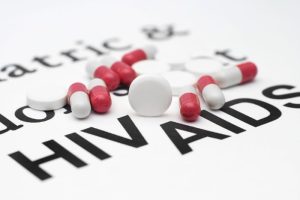

The National AIDS, Viral Hepatitis, and STIs Control Programme (NASCP) is set to improve standardized procedures for preventing mother-to-child transmission of HIV (PMTCT) services across Nigeria.
This effort aims to align with the Global 95:95:95 targets for HIV control.
Dr. Adebobola Bashorun, Director and National Coordinator of NASCP, announced the initiative during the 2024 assessment of retention in HIV care for PMTCT and children, held in Abuja.
She highlighted that retention rates in PMTCT and children’s HIV care are currently at 33%, underscoring the need for better integration of HIV services into broader health systems, enhanced data systems, and improved human resources to ensure effective management.
The assessment, conducted across 12 states in Nigeria’s six geopolitical zones, revealed concerning statistics. Godpower Omoregie, NASCP Consultant and Programme Coordinator, expressed dissatisfaction with the findings, stating:
“In the North-Central, we assessed Kogi and Benue states; in the North-West, Kano and Kaduna; in the North-East, Gombe and Adamawa; in the South-South, Delta and Akwa Ibom; in the South-East, Enugu and Anambra; and the South-West, Ogun and Lagos states.
“While there is some progress in retention, benchmarking against the 95% global target shows that about 40% of clients are not retained in care, which is alarmingly low.”
Dr. Yewande Olaifa, Deputy Director at the National Agency for the Control of AIDS (NACA), assured that the agency would analyze the survey findings to identify challenges and draw lessons from states that demonstrated successful practices. She emphasized the importance of optimizing limited resources to bridge identified gaps.
Dr. Victoria Isiramen, a maternity and newborn health specialist with UNICEF, stressed the need for a unified approach involving all levels of government and non-governmental organizations to address retention challenges in HIV care.
Nigeria has the world’s second-highest burden of HIV/AIDS, with an estimated three million people living with HIV (PLHIV) and 190,950 new infections recorded in 2015.
In December, the Minister of State for Health and Social Welfare, Dr. Iziaq Adekunle Salako, reiterated Nigeria’s dedication to achieving the global goal of ending AIDS by 2030.
Speaking at the commemoration of the 2024 World AIDS Day, with the theme “Take the Rights Path: Sustain the HIV Response and Stop HIV Among Children to End AIDS in Nigeria by 2030,” Dr. Salako called for sustained momentum in the fight against HIV/AIDS.
Nigeria has the world’s second-highest burden of HIV/AIDS, with an estimated three million people living with HIV (PLHIV) and 190,950 new infections recorded in 2015.










